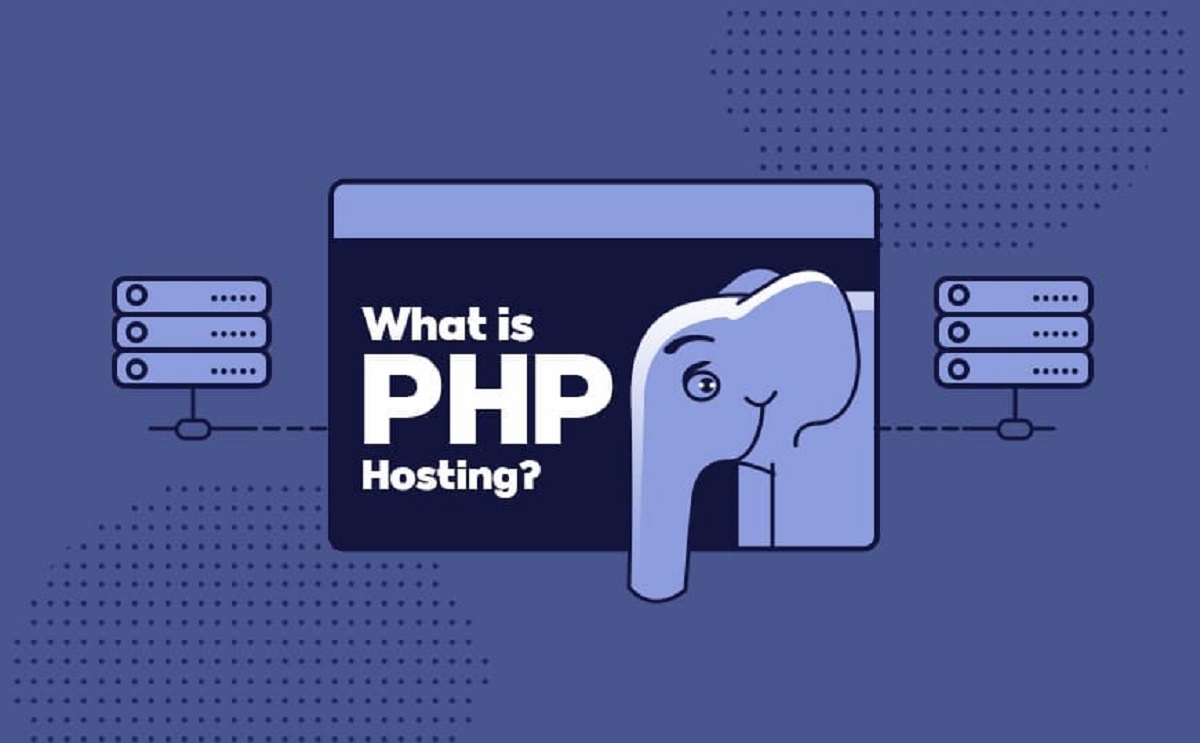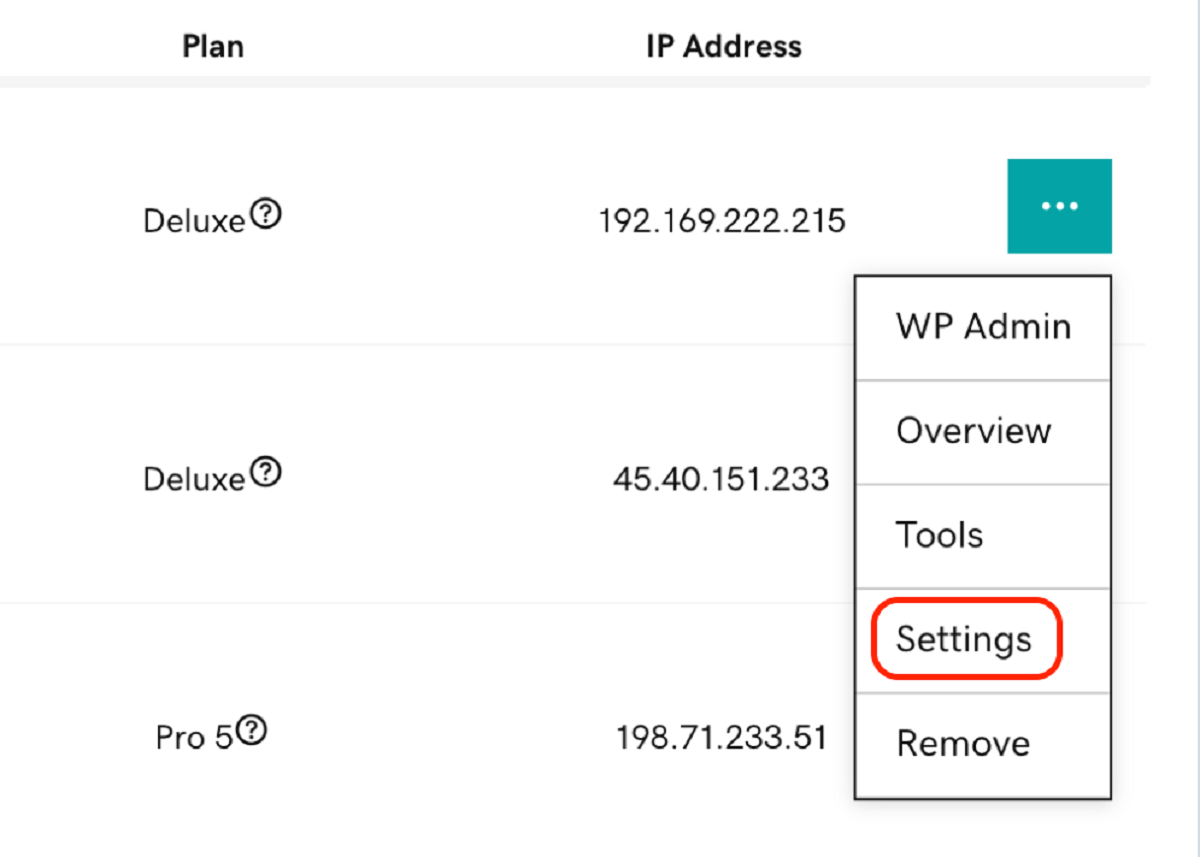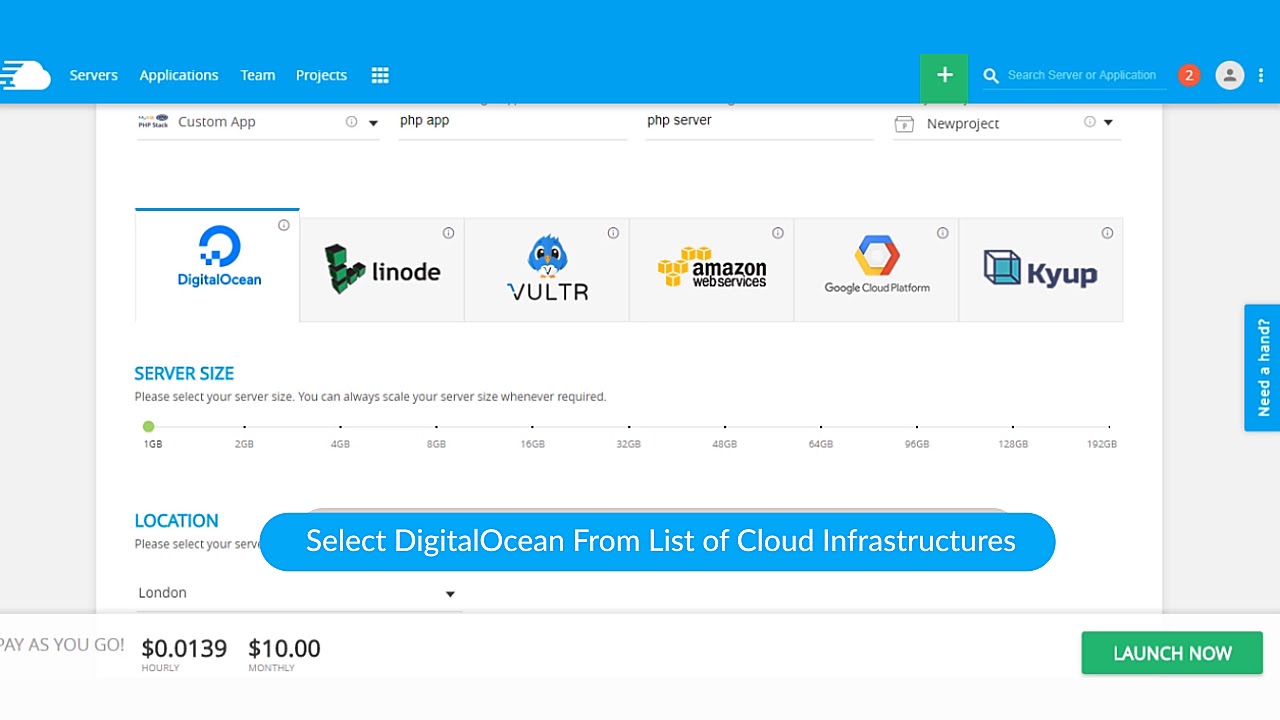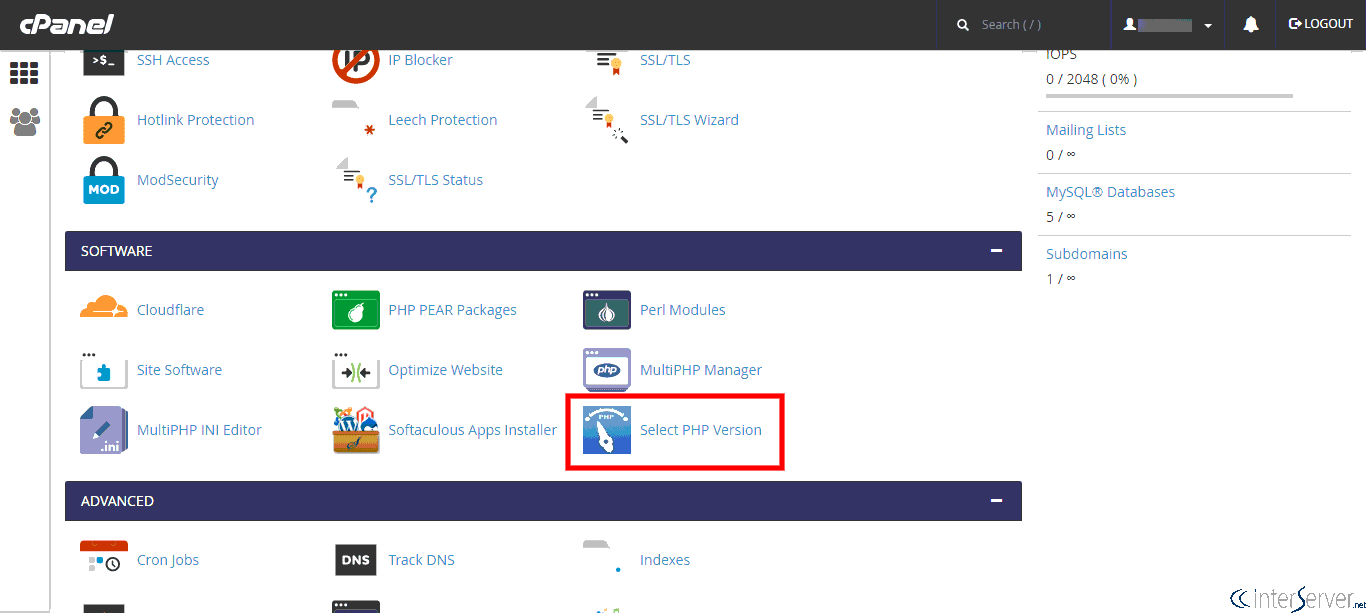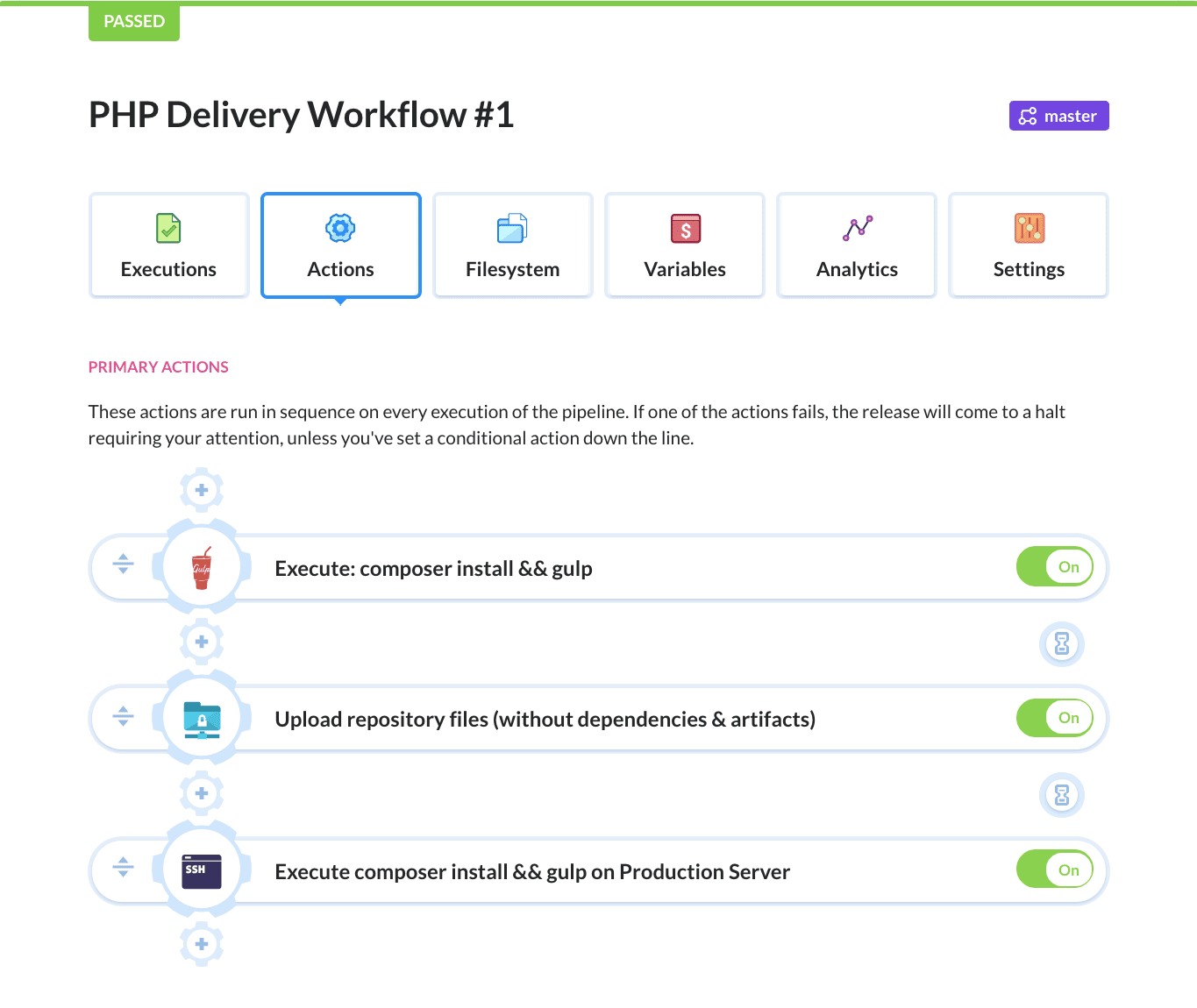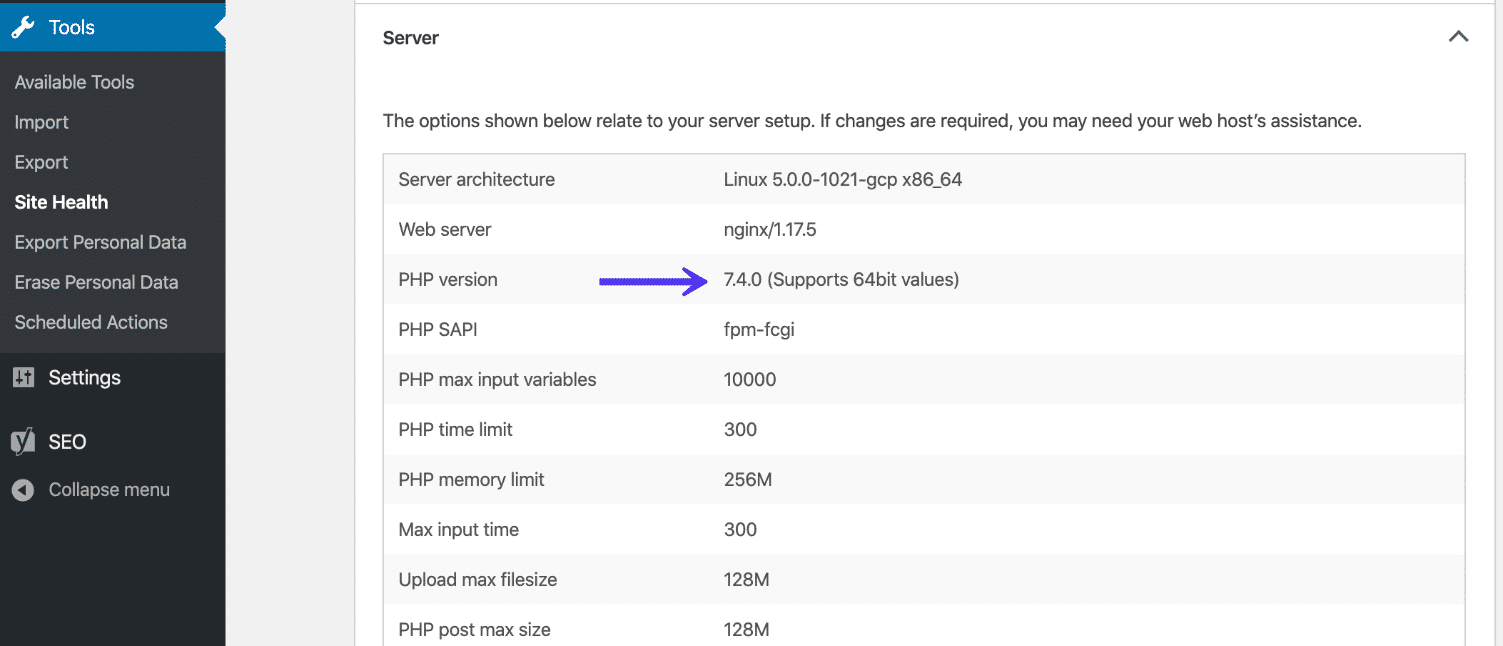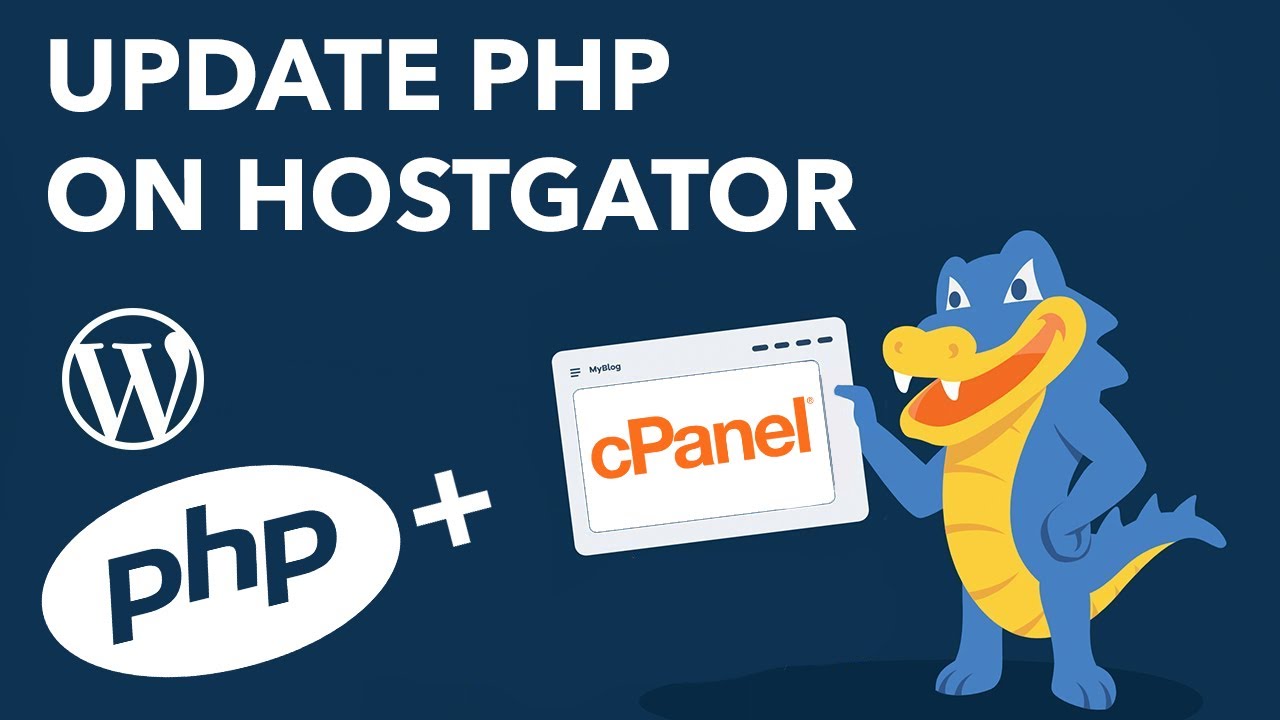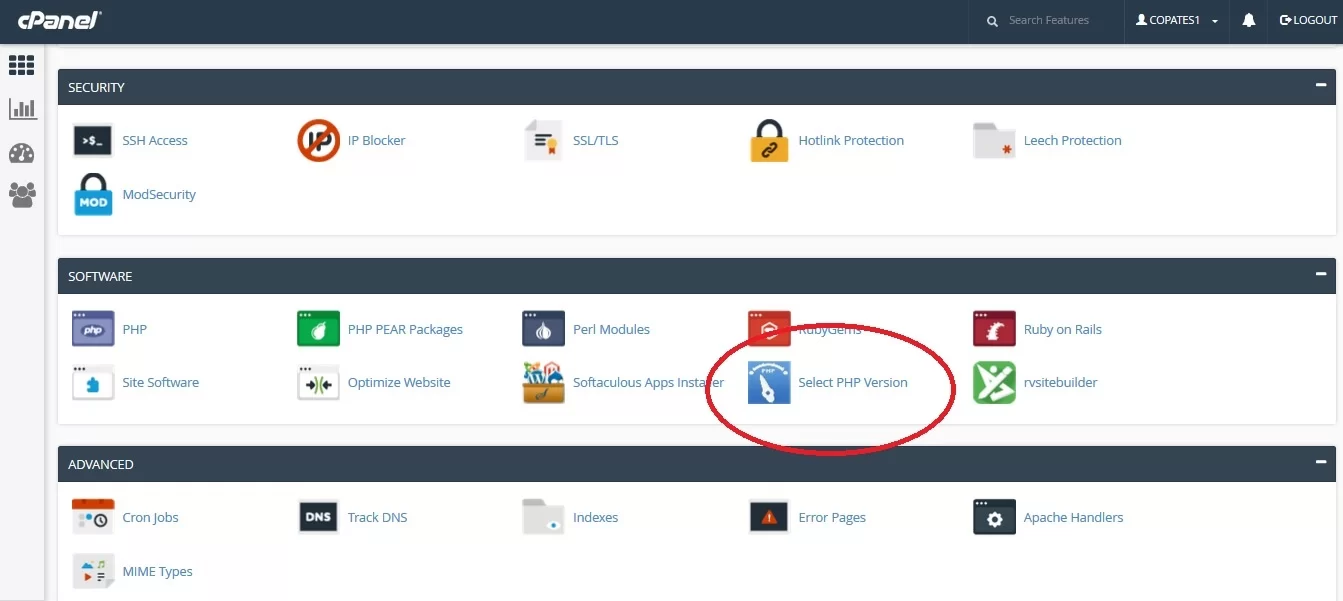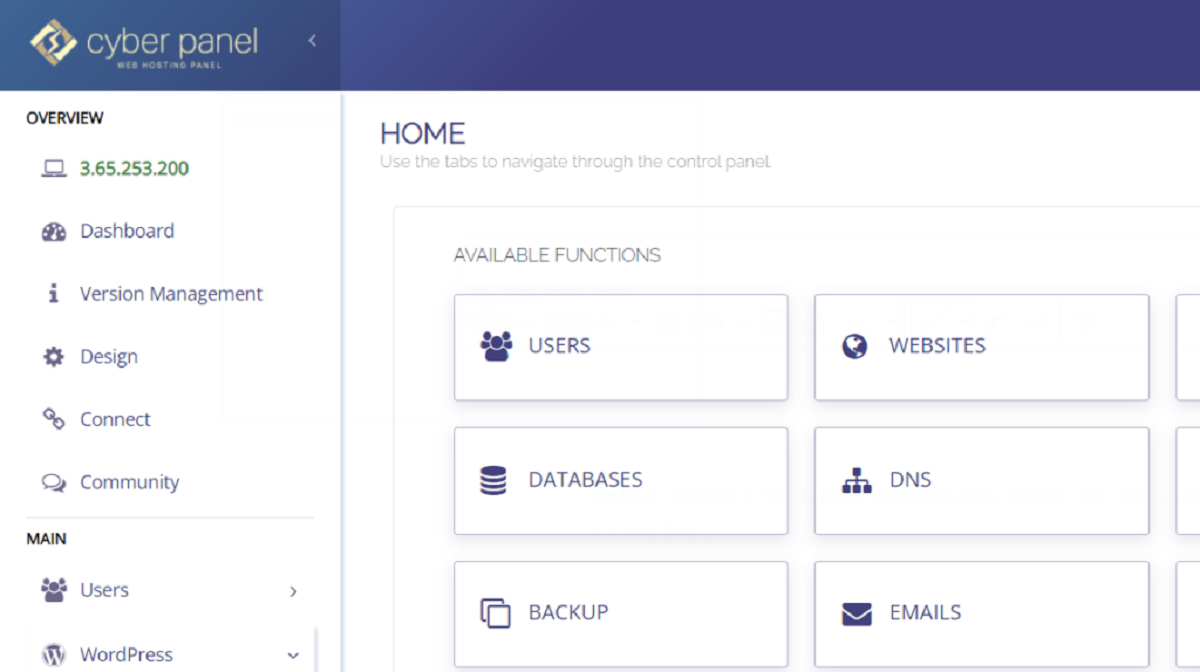Introduction
Welcome to the world of PHP hosting! If you’re new to hosting and wondering what PHP hosting is all about, you’ve come to the right place. PHP hosting is a type of web hosting that specifically supports websites and applications developed using the PHP programming language.
PHP is one of the most popular server-side scripting languages used for building dynamic websites and web applications. It offers a wide range of functionalities and is highly customizable, making it a favorite choice for developers around the globe. PHP hosting providers offer servers specifically optimized to run PHP applications seamlessly, ensuring optimal performance and compatibility.
In this article, we will delve into the intricacies of PHP hosting, understand how it works, explore its benefits, and discuss the different types of hosting options available. Additionally, we will provide insights on the essential features to look for when selecting a PHP hosting provider.
So, whether you’re a web developer looking to host your PHP-based projects or a business owner in need of a reliable hosting solution, this article will serve as your comprehensive guide to everything you need to know about PHP hosting.
What is PHP Hosting?
PHP hosting refers to a type of web hosting service that specifically caters to websites and applications built using the PHP programming language. PHP, which stands for Hypertext Preprocessor, is a widely used server-side scripting language that is designed for web development. It allows developers to create dynamic and interactive web pages by embedding PHP code within HTML code.
PHP hosting providers offer servers that are optimized to run PHP applications smoothly. These servers are pre-configured with the necessary software and tools to support PHP scripts, ensuring maximum compatibility and performance. With PHP hosting, you can host a wide range of PHP-based websites and applications, including blogs, e-commerce platforms, content management systems, forums, and more.
One of the key advantages of PHP hosting is its versatility and scalability. PHP supports various databases, such as MySQL, PostgreSQL, and SQLite, making it easy to integrate and interact with data. Additionally, PHP is compatible with different operating systems, including Windows, macOS, and Linux, allowing developers to choose the platform that best suits their needs.
Another significant benefit of PHP hosting is its vast community and extensive documentation. PHP has a large and active community of developers who continuously contribute to its development and provide support through forums, tutorials, and online resources. This means that if you encounter any issues or need assistance, there are abundant resources available to help you find a solution quickly.
Furthermore, PHP hosting providers often offer additional features and tools that are specifically tailored for PHP applications. These can include advanced caching mechanisms, automatic script installers, version control systems, and support for popular PHP frameworks like Laravel and Symfony. These features not only enhance the performance and security of your PHP application but also simplify the development and deployment process.
In summary, PHP hosting is a hosting service that caters to websites and applications developed using the PHP programming language. It provides optimized servers, extensive community support, and additional features that are specifically designed to enhance PHP application performance and development. If you have a PHP-based project and want a reliable and efficient hosting solution, PHP hosting is the way to go.
How Does PHP Hosting Work?
PHP hosting works by providing a server environment that is specifically optimized to support and execute PHP scripts. When you choose a PHP hosting provider, they allocate server resources, such as storage space, processing power, and memory, to host your PHP-based website or application.
When a user requests your PHP website or application, the server processes the PHP code, along with any necessary database queries or file operations, and generates an HTML page dynamically. This HTML page is then sent back to the user’s web browser, which renders it as a fully functional web page.
To enable PHP execution on the server, PHP hosting providers typically use a web server software such as Apache or Nginx, which acts as a bridge between the server and the client’s web browser. These web servers have modules or extensions specifically designed to handle PHP code and process it server-side.
PHP hosting also requires a PHP runtime environment, which includes a PHP interpreter or engine that executes the PHP code. The most commonly used PHP runtime environment is PHP-FPM (FastCGI Process Manager), a highly efficient and fast PHP implementation that improves the performance of PHP applications.
To manage PHP hosting, hosting providers often use control panels such as cPanel or Plesk. These control panels give you access to various tools and features to manage your PHP applications, such as the ability to upload and manage files, configure databases, set up email accounts, and monitor website statistics.
PHP hosting providers also offer support for different versions of PHP, allowing you to choose the version that your website or application is compatible with. It is essential to keep your PHP version up to date to ensure compatibility with the latest security patches, features, and improvements.
Overall, PHP hosting works by providing a server environment that can interpret and execute PHP code. It uses specialized web server software, PHP runtime environments, and control panels to manage the hosting process efficiently. This allows your PHP-based website or application to run smoothly and deliver dynamic content to users’ browsers.
Benefits of PHP Hosting
PHP hosting offers several benefits that make it an attractive choice for hosting PHP-based websites and applications. Whether you are a developer or a business owner, here are some key advantages of PHP hosting:
- Compatibility: PHP is compatible with various operating systems, such as Windows, macOS, and Linux. This means that you can easily host your PHP applications on servers running different operating systems, providing flexibility and choice.
- Versatility: PHP supports a wide range of databases, including MySQL, PostgreSQL, and SQLite, allowing you to integrate and interact with databases seamlessly. Additionally, PHP offers compatibility with different web servers, making it versatile and adaptable to your specific needs.
- Large Developer Community: PHP has a vast and active community of developers worldwide. This means that you can find plenty of support, resources, tutorials, and code snippets to aid in your PHP development journey. The community also constantly contributes to the improvement of PHP, ensuring its relevance and efficiency.
- Scalability: PHP hosting offers scalability, allowing your website or application to handle increasing amounts of traffic and data as your business grows. PHP scripts can be easily optimized, and with the right hosting provider, you can scale your resources as needed to accommodate traffic spikes and ensure optimal performance.
- Cost-Effective: PHP hosting is generally more affordable compared to other hosting options. The PHP programming language is open-source, meaning that it is free to use and does not require expensive licensing fees. This makes it an excellent choice for businesses looking for cost-effective hosting solutions.
- Extensive Documentation: PHP has extensive documentation available, making it easy to learn and understand. The wealth of online resources, tutorials, and forums dedicated to PHP ensures that you can quickly find answers to your questions and solutions to any coding challenges you may face.
- Frameworks and Libraries: PHP has a wide range of frameworks and libraries, such as Laravel, Symfony, and CodeIgniter, that help streamline the development process. These frameworks provide pre-built modules, libraries, and tools that speed up development, enhance security, and promote best practices.
In summary, PHP hosting offers compatibility, versatility, scalability, and affordability for hosting PHP-based websites and applications. The large developer community, extensive documentation, and availability of frameworks and libraries make PHP hosting a convenient and efficient choice for developers and businesses alike. By choosing PHP hosting, you can take advantage of these benefits and ensure that your PHP project is running smoothly and efficiently.
Features to Look for in a PHP Hosting Provider
When choosing a PHP hosting provider, it’s essential to consider certain features that can enhance the performance, security, and overall experience of hosting your PHP-based website or application. Here are some key features to look for:
- PHP Version: Ensure that the hosting provider supports the latest stable version of PHP and provides the flexibility to choose different PHP versions. This will ensure compatibility with your PHP code and allow you to take advantage of the latest features and security updates.
- Server Resources: Consider the allocated resources such as CPU, RAM, and storage space. A hosting provider that offers ample resources will ensure that your PHP application runs smoothly, even during high traffic periods.
- Uptime Guarantee: Look for a hosting provider that offers a high uptime guarantee, ideally 99.9% or above. This ensures that your website or application remains accessible to users, minimizing downtime and potential revenue loss.
- Security Measures: Check for security features such as SSL certificates, firewalls, malware scanning, and regular backups. Robust security measures are essential to protect your PHP application and sensitive user data from potential threats.
- Database Support: Ensure that the hosting provider supports the database system you need for your PHP application, such as MySQL, PostgreSQL, or SQLite. Additionally, consider if they offer tools for managing and optimizing database performance.
- Control Panel: A user-friendly control panel, such as cPanel or Plesk, can simplify the management of your PHP hosting environment. Look for a hosting provider that offers an intuitive control panel with features like file management, database management, and email account setup.
- Developer Tools: Consider hosting providers that offer developer-friendly features like support for popular PHP frameworks, version control systems, SSH access, and one-click script installations. These tools can streamline your development workflow and make it easier to deploy and manage your PHP applications.
- Support: Look for a hosting provider with responsive and knowledgeable customer support. They should offer multiple support channels, such as live chat, email, or phone support, and have a reputation for promptly addressing any technical issues or queries.
- Scalability: Consider whether the hosting provider offers scalability options, such as the ability to easily upgrade or downgrade resources as your website or application’s needs change. This ensures that your hosting environment can adapt to your growing requirements.
When evaluating PHP hosting providers, it’s essential to consider how these features align with your specific project requirements. By selecting a provider that offers the right combination of features, you can ensure that your PHP application runs smoothly, securely, and efficiently.
Different Types of PHP Hosting
When it comes to PHP hosting, there are several different types of hosting options available. Each type offers unique features and caters to specific needs. Here are some of the most common types of PHP hosting:
- Shared Hosting: Shared hosting is the most common and affordable option for hosting PHP websites. It involves multiple websites sharing the resources of a single server. While shared hosting is budget-friendly, it may have limitations in terms of performance and customization options.
- VPS Hosting: VPS (Virtual Private Server) hosting offers a middle ground between shared hosting and dedicated hosting. With VPS hosting, a physical server is divided into multiple virtual servers, each with its resources. This allows for more control, higher performance, and customization options.
- Dedicated Hosting: Dedicated hosting provides an entire physical server dedicated solely to your PHP application. This type of hosting offers maximum performance, flexibility, and security. It is suitable for high-traffic websites or applications that require extensive resources and customization.
- Cloud Hosting: Cloud hosting utilizes a network of interconnected servers to host PHP applications. This provides scalability and flexibility as resources can be easily scaled up or down depending on demand. Cloud hosting is known for its reliability and uptime, making it an excellent choice for growing websites.
- Managed Hosting: Managed hosting involves outsourcing the technical aspects of hosting, such as server management, security, updates, and backups, to the hosting provider. This allows you to focus on your PHP application without worrying about server administration tasks.
- Reseller Hosting: Reseller hosting allows you to resell hosting services to others. It is suitable for developers or agencies who want to offer hosting as part of their services. With reseller hosting, you can create and manage multiple hosting accounts using a single control panel.
- WordPress Hosting: WordPress hosting is specialized hosting tailored specifically for WordPress websites built using PHP. It includes features optimized for WordPress performance, security, and ease of use, such as one-click WordPress installations, automatic updates, and caching.
When choosing the right type of PHP hosting, consider factors such as your budget, website traffic, scalability requirements, customization needs, and level of technical expertise. Understanding the differences between these hosting types will help you make an informed decision and select the most suitable PHP hosting option for your project.
Choosing the Right PHP Hosting Provider
Choosing the right PHP hosting provider is crucial for ensuring the success and smooth operation of your PHP-based website or application. With numerous hosting providers available, it’s essential to consider several factors before making a decision. Here are some key considerations to help you choose the right PHP hosting provider:
- Reliability and Uptime: Look for a hosting provider that guarantees high uptime, ideally 99.9% or above. A reliable hosting provider ensures that your website is accessible to visitors without downtime or disruptions.
- Performance and Speed: Consider hosting providers that offer fast server performance and optimized environments for PHP applications. Look for features such as solid-state drives (SSDs), content delivery networks (CDNs), and caching mechanisms to improve website loading times.
- Support and Assistance: Evaluate the level of customer support provided by the hosting provider. Look for providers that offer multiple support channels, such as live chat, email, or phone support, with responsive and knowledgeable representatives who can assist you promptly.
- Security Measures: Ensure that the hosting provider has robust security protocols in place to protect your PHP application and user data. Features such as SSL certificates, firewalls, malware scanning, and regular backups are essential for maintaining the security of your website.
- Scalability and Resources: Consider the scalability options offered by the hosting provider. Your PHP hosting should have the ability to easily scale resources as your website or application grows. Additionally, ensure that the allocated server resources, such as CPU, RAM, and storage, are sufficient for your project’s needs.
- Backup and Recovery: Check if the hosting provider offers regular backups of your PHP application and database. Having reliable backup and recovery options can protect your data and ensure that you can restore your website quickly in case of any unforeseen issues.
- Cost and Value: Compare the pricing plans and features offered by different hosting providers. Consider the value you are getting for the price, including server performance, support quality, security measures, and additional features specific to PHP hosting.
- User-Friendly Control Panel: A user-friendly control panel, such as cPanel or Plesk, can simplify the management of your PHP hosting environment. Ensure that the hosting provider offers an intuitive control panel with features that allow you to manage domains, databases, files, and email accounts easily.
- Reviews and Reputation: Look for reviews and testimonials from other customers to evaluate the hosting provider’s reputation and reliability. Check online forums and social media platforms to gather insights and recommendations from existing users.
Consider your specific project requirements and prioritize the features that align with your needs. It’s always recommended to start with a reputable hosting provider that offers good customer support, reliable performance, and robust security measures. By carefully selecting the right PHP hosting provider, you can ensure a seamless hosting experience and set your PHP project up for success.
Conclusion
In conclusion, PHP hosting is a specialized hosting solution designed specifically for PHP-based websites and applications. It provides an optimized environment to run PHP scripts, ensuring maximum performance and compatibility. With a variety of hosting options available, such as shared hosting, VPS hosting, dedicated hosting, cloud hosting, managed hosting, reseller hosting, and WordPress hosting, you can choose the one that best suits your specific needs and budget.
When selecting a PHP hosting provider, it is essential to consider factors such as reliability, uptime guarantees, server performance, customer support, security measures, scalability options, and pricing. By evaluating these factors, you can ensure that your PHP project is hosted on a reliable and secure platform that meets your performance and customization requirements.
Remember to consider the specific features that are important for PHP hosting, such as support for the latest PHP version, database compatibility, developer tools, and user-friendly control panels. These features can significantly impact your development workflow and the performance of your PHP application or website.
Additionally, keep in mind that the success of your PHP hosting experience depends on choosing a reputable and reliable hosting provider. Read reviews, gather recommendations, and consider the provider’s reputation in the industry before making a decision.
Overall, PHP hosting offers numerous benefits, including compatibility, versatility, scalability, cost-effectiveness, and a vast community of developers. By selecting the right PHP hosting provider and leveraging the features and resources they offer, you can ensure the smooth operation and success of your PHP-based projects.







